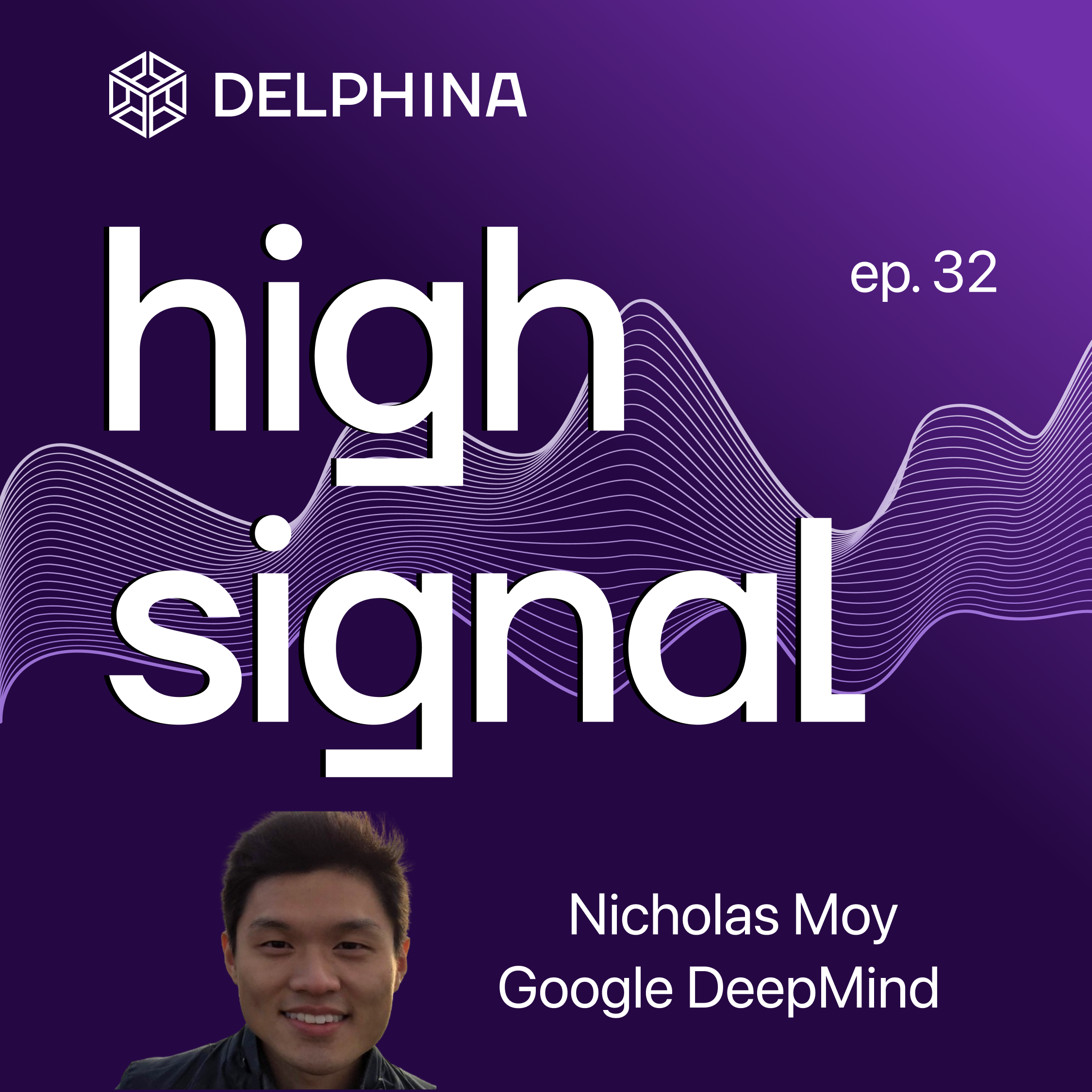Hilary Mason on What Happens to Data Science in the Age of AI

Hidden Door
Hilary Mason is a renowned data scientist and entrepreneur, best known for her pioneering work in the field of data science. She is the co-founder of Hidden Door, a startup exploring narrative AI, and was previously the founder of Fast Forward Labs, which focused on applied machine learning research.
Hilary also served as the Chief Scientist at Bitly and is a sought-after advisor, speaker, and thought leader in AI and technology. Her work has consistently been at the intersection of data, ethics, and innovation, making her one of the most influential voices in the industry today.




Delphina
Hugo Bowne-Anderson is an independent data and AI consultant with extensive experience in the tech industry. He is the host of the industry podcast Vanishing Gradients, where he explores cutting-edge developments in data science and artificial intelligence.
As a data scientist, educator, evangelist, content marketer, and strategist, Hugo has worked with leading companies in the field. His past roles include Head of Developer Relations at Outerbounds, a company committed to building infrastructure for machine learning applications, and positions at Coiled and DataCamp, where he focused on scaling data science and online education respectively.
Hugo's teaching experience spans from institutions like Yale University and Cold Spring Harbor Laboratory to conferences such as SciPy, PyCon, and ODSC. He has also worked with organizations like Data Carpentry to promote data literacy.
His impact on data science education is significant, having developed over 30 courses on the DataCamp platform that have reached more than 3 million learners worldwide. Hugo also created and hosted the popular weekly data industry podcast DataFramed for two years.
Committed to democratizing data skills and access to data science tools, Hugo advocates for open source software both for individuals and enterprises.
Key Quotes
Key Takeaways
- Judgment as a Superpower in Data Science
As automation takes over repetitive tasks, human judgment remains the most critical skill for defining problems, interpreting results, and making decisions.
- Practical Tip: Focus on honing critical thinking and problem-framing skills, as these are essential in navigating complex challenges.
- Practical Tip: Encourage team members to look beyond metrics and prioritize solutions that align with broader business goals.
- Generative AI is a Tool, Not a Silver Bullet
While generative AI unlocks new possibilities, it isn’t the best solution for every problem. Thoughtful integration with existing systems often yields better results.
- Practical Tip: Use generative AI to prototype solutions or solve creative problems but rely on simpler methods like heuristics or traditional ML for predictable outcomes.
- Practical Tip: Start small to test generative AI’s utility in controlled environments before scaling.
- Rich Context Trumps Prompt Engineering
Designing AI systems around context—such as embeddings, structured databases, and metadata—provides more reliable and scalable outcomes than relying solely on prompts.
- Practical Tip: Pair generative models with structured systems to enforce consistency and logic in outputs.
- Practical Tip: Build context-rich environments to guide AI behavior, reducing reliance on manual prompt crafting.
- The Shifting Role of Data Science Careers
Automation is reshaping entry-level roles, emphasizing creativity, judgment, and the ability to frame meaningful problems.
- Practical Tip: Develop skills in problem identification, communication, and creativity to remain indispensable in a shifting landscape.
- Practical Tip: Seek opportunities to learn from mentors with strong judgment to build transferable skills.
- Navigating AI Strategy with Leadership
Leaders face pressure to adopt AI quickly, but aligning initiatives with business needs requires collaboration and realistic expectations.
- Practical Tip: Start conversations by understanding leadership’s definitions of AI and aligning them with achievable goals.
- Practical Tip: Focus on high-impact, practical applications that leverage existing business strengths while setting realistic milestones for AI adoption.
You can read the full transcript here.
00:00 Introduction to Data Science in the Age of LLMs
00:50 The Evolution of Data Science
01:19 Navigating AI Strategy and AGI
01:56 Challenges with Large Language Models
03:54 Hilary Mason's Career Journey
05:47 The Role of Judgment in Data Science
06:44 From Data Science and Machine Learning to GenAI
22:19 Generative AI and Hidden Door
38:52 Addressing Bias in AI Systems
39:10 Hidden Door's Approach to Character Creation
39:53 Using LLMs for Translation and Control
42:58 Combining Generative Models with Structured Systems
44:52 Ensuring Compliance and Reducing Costs
47:10 Skills and Roles in Data Science and AI
52:04 The Future of Data Science in the Age of AI
01:08:48 Managing Expectations and Risks in AI Adoption
01:14:19 Career Paths and Learning in the AI Era
01:17:10 Final Thoughts on Data Science and AI
Links From The Show
Transcript
In the spotlight: Our most popular episodes
Listen up: Our latest discussions
Hear the hottest takes on data science and AI.
Get the latest episodes in your inbox
Never miss an episode of High Signal by signing up for the Delphina newsletter.


.svg)

.png)




.png)